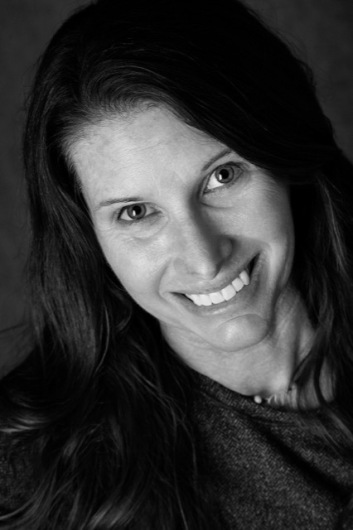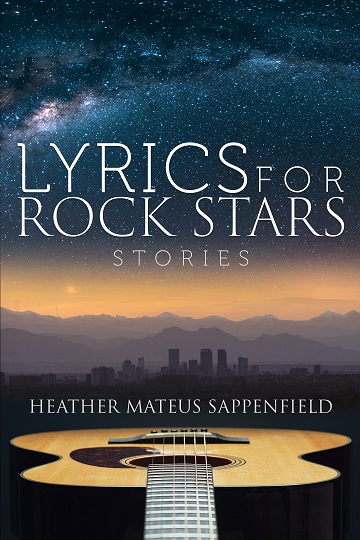Heather Mateus Sappenfield ~

Writers are often told to study the market. Research other books. Learn what’s selling. Seek an agent who fits that genre. All this is excellent advice. In my experience, however, its slant is off. Know the market, yes, but not so you can squeeze your story into a shape you hope will sell. No, instead understand the nuances of the market so that once you write the book in its own authentic form, you can then determine which route to publication will best serve your baby.
It’s a bit like choosing a university for your kiddo. Harvard, Stanford, Cambridge, and Oxford are prestigious yet extremely competitive, and, while they may house great minds, brilliant people also teach at smaller colleges, and a more intimate environment may be more favorable to your offspring’s development. My advice to writers is, as with a daughter or son, to honestly consider what’s most nurturing for your book.
If you’re writing a series, a brand, a genre that fits a pattern time and again, pursuing the same route makes sense. It’s like going to your favorite restaurant for a meal you crave. I’m currently gobbling up one novel after another in a mystery series. Yet my own writing process tends to take the shape that the narrators and their conflicts dictate. As a result, I’ve written two YA novels, a short story collection, a middle grade novel, and most recently an upmarket women’s fiction novel. Their commonality resides in my literary style. And I’ve learned that trying to follow the same path to publication may actually hold a book back.
Early on, after completing my MFA, I published those two YA novels in quick succession. I had an agent specializing in that genre, so, rightfully, she wanted me to continue producing YA. But creating stories aimed toward a genre deafened me to my process, and my work became hollow junk. My agent dumped me. I grew disillusioned. The business seemed too hard, too dehumanizing, too much about marketing trends and earning a buck. I quit writing.
While I pondered career choices, I rooted around in my shadows, taking a long unflinching look at myself, and I emerged with this kernel of truth: connecting with readers is my writer’s purpose, any themes or “art” arises organically from that, and where I’d gone astray was in my motivation. I returned to the craft, focusing, not on results, but on the purity of that connection. After having sprinted down the traditional publishing highway, this approach felt bold, precarious, impractical, yet, even as a Colorado Book Awards Finalist, I hadn’t made any notable income, so what did I have to lose?
With that in mind, my craft was freed from the pressure of conformity, and my writing began to shine. I polished a short story collection I’d set aside. A few years back it’d been a finalist for several major competitions. Now I researched presses, not for prestige, rather for the right fit. The collection explores women in the American West, especially throughout history. Not only how we’ve been the currency of ambition, but also how we’ve perpetuated certain roles ourselves. With that in mind, I entered the V Press LC Compilation Book Prize. V Press was begun by women, its Managing Editor and Director a domestic abuse survivor, and this seemed a fit. A few months later Lyrics for Rock Stars won. Working with this micro press, I’ve been involved in virtually every step of the process, and it has truly renewed my faith in publishing.

I also returned to a middle grade novel I’d written. My agent had panned it, and I’d submitted it to a few other agents, who’d asked for the full manuscript but declined representation. Yet I believed in the story. My critique group and readers kept assuring me it stood out. As I polished the writing—mindful of what the book needed rather than my ideal of having an agent—I realized it didn’t fit the current aesthetics of the traditional market. With research, I discovered a marvelous world of smaller presses, looking to publish books that strayed beyond those narrow lanes. I entered the novel in the Kraken Prize at Fitzroy Books because the press had an ethic that dovetailed with the novel’s themes. Lo and behold, it didn’t win but was the finalist, and they offered me a publishing contract for The River Between Hearts, due to release soon.
Now I have an upmarket women’s fiction manuscript ready. After such positive experiences without an agent, I’m hesitant to pursue one. Yet this book whispers that it would thrive along that route, so here I go.
Regardless of your book’s path, never assume someone else will look out for it. My first novels were with Flux, at that time a respected literary YA imprint of Llewellyn. I made the mistake of thinking I’d made it, that they’d usher them into the world. They did, a bit, but in truth the publicity folks at publishing houses tend to be young, underpaid, and/or overworked. There’s intense focus during production of the book that lulls you into thinking it will continue once it’s released. After publication, though, there’s often an incongruous disconnect and detachment. To give a book its due, an author needs to be vigilant about creating opportunities for promotion. Self-published authors are excellent, often inspiring, models for this. If marketing comes naturally to you, great. If it doesn’t, I recommend a publicist, even if you already have one at your publisher. A good publicist will coordinate with a publisher and will cost a minimum of seven thousand dollars for a comprehensive campaign.
Each writer’s process is theirs alone, and I applaud anyone who has the fortitude to write a book. But I’ve learned that stories thrive when I approach them like parenting, herding aside my biases and giving them space to grow, thus allowing my babies to mature along the routes most beneficial to them.
— Heather Mateus Sappenfield
~~~~~~~~~~~~~~~~~~~~~~~~~~~
Heather Mateus Sappenfield’s writing explores the adventures that fill life, often in the Rocky Mountain landscape that has been her lifelong home. She’s fascinated by the many selves each of us becomes in our varied roles throughout the day (some we like, some we do not), and her writing often delves into the internal adventure of juggling those multiple selves. Among the many recognitions her fiction has received are the Danahy Fiction Prize, the Arthur Edelstein Prize, three Pushcart Prize nominations, and finalist for the Flannery O’Connor Award, the Kraken Prize, and the Colorado Book Awards. Lyrics for Rock Stars is her first short story collection. To learn more about Heather’s life and work, visit: https://heathermateussappenfield.com.

thanks for sharing this. your experience seems quite extensive. i’m so in awe of people who have had the benefit of getting so much of their work published because i’ve got the content and it’s been with me, often inside my head but never really got to find a way to get it published through mainstream, any advise apart from what you’ve shared here?
LikeLiked by 1 person
Hi Sophia, I’ll let Heather know you’ve commented but my two cents is to get the words down on paper first, get some feedback from others in the writing community, and pitch to literary journals etc. first before thinking about publishing a collection or novel. Good luck!
LikeLike
Hi Sophia, Nicole’s advice is perfect. I agree: first write the story, listening carefully to the form it wants to take, be it short story, novella, novel, memoir. Sometimes, in the writing, the story becomes something other than what you’d imagined; that’s one of my favorite aspects of the craft! Then, yes, find a writing group. Perhaps you already have one, or you could join a writing organization and find one through them. Once you feel the work is polished, set it aside for a while, and work on something else. Return to it with fresh eyes and revise again. Then make a list of the work’s traits—form, genre, themes, style, etc. From that, start your search, setting aside ambition, and looking at what truly fits the writing. Here in the States, Poets & Writers Magazine has an excellent database for finding publishers, magazines & journals. Duotrope is also good. Or perhaps you’d like to try for an agent. A few represent short stories, but not many. This is because agents are go-betweens that need to make money, and story collections don’t usually sell as well as other books. Contests can also be an excellent way to get your work out there and build your platform. I’m honored that you are in awe of how many stories and books I’ve published, but it’s simply the result of a good strong back and a lot of hard work! Best of luck to
LikeLiked by 2 people
wow. such a patient response. I truly appreciate this. I’m also open to a collab and will look forward to find the right partners to work with. what do you think?
LikeLiked by 1 person